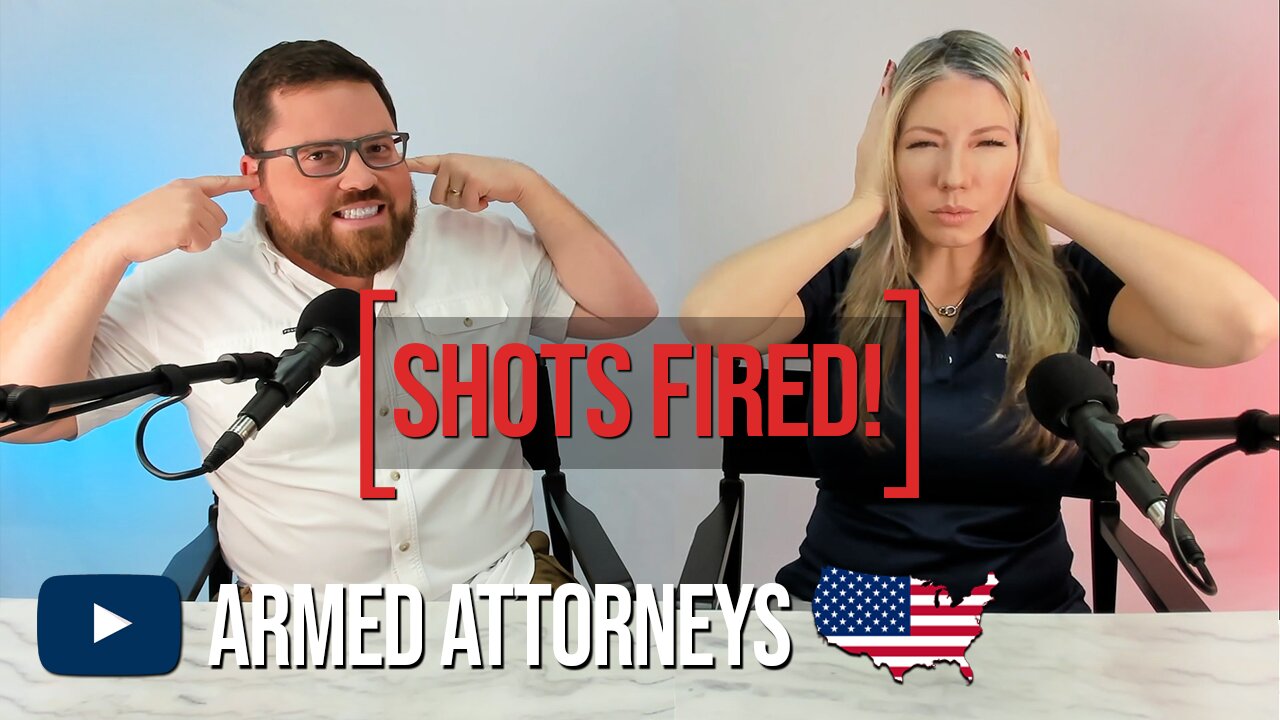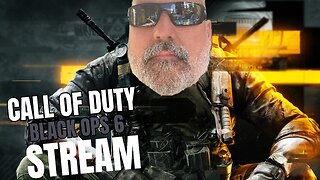Premium Only Content

Why Warning Shots May Be a Bad Idea
Is a warning shot a bad idea? How are warning shots treated in the courtroom? How does the law treat a warning shot? The Armed Attorneys break down the gun law that applies to self-defense warning shots.
Join this channel to help support our 2A community:
https://www.youtube.com/channel/UCE8BZHDMuyEEF-48z3ER0Pg/join
Follow us on Twitter and Instagram: @ArmedAttorneys
Richard D. Hayes, II: @TXGunLaw
Emily Taylor: @2A_Attorney
Make sure to subscribe for more gun law, self-defense, and firearm news.
Gun law, self-defense FAQs, and the 2A simplified every Monday, Wednesday, and Friday at 4 PM CT.
PARTIAL AUTO GENERATED TRANSCRIPT
Today we're talking about warning shots and how they're generally treated in a courtroom stick around for our pro tip about less than lethal rounds and before we get started please show your support for the Second Amendment by hitting the like button and so to kick things off we have to say what is a warning shot and this is not a universal statutory definition across the entire United States but essentially what we're talking about is the intentional discharge of a firearm not at a person but our intended target is supposed to be a safe direction and we're discharging the firearm as a warning to um you know supposedly a threat and so when we're saying warning shot we're saying we're shooting a gun off in a direction not at a target to cause it serious bodily injury or death but as a warning now what state law does and we see this across the United States is a use of deadly force isn't uh it's not on a spectrum like we see when you go through let's say the police academy where they say you know being physically present in a location or assertive verbal commands all the way all the way up to a use of deadly force and you have lots of steps along the way we don't really have a use of force spectrum when we look at state laws they like to take a use of force and put it into a couple of different buckets whether that's the use of force or great bodily harm or use of deadly force deadly physical force they'd like to take some action and try to fit it into one of these buckets and what we see is the discharge of a firearm is almost always considered a use of deadly force or deadly physical force and the reason for that being that you know deadly force is generally that which is intended or likely to cause serious bodily injury or death and of course every state definition varies a little bit that's our general idea ... i mean generally speaking this is the standard you'll be held to and why warning shots are really bad ideas because they violate the self-defense principle of immediacy we see this across the states that in if you're responding to a threat that it must be immediately necessary or imminently reasonable... when we're discharging a firearm and we're intentionally choosing to point it in a safe direction not at a target to stop the target we see that time to calculate that time to point it in a safe direction is you know if you have time to think about it then maybe it violates the principle of immediate yeah it weighs against that threat being an immediate danger to your life and it doesn't mean it's always going to be true but it definitely weighs against and it's something we see in our practice yeah and it's kind of serving up on a silver platter to the prosecutor hey look here's a demonstration of a use of deadly force or deadly physical force and it's also we know it's not immediately necessary because they had time to point the firearm in a safe direction and so that's why we see it warning shots just aren't a very good idea but that brings us to our attorney pro tip of the day what is our pro tip Emily it's about less than lethal rounds do not assume that a warning shot with a less than lethal round is going to be use of force not deadly force don't assume it's not going to violate this principle and you'll be held to the lower standard we see here in Texas it is up to a jury to decide whether or not your bean bag round and this is actually a real client story of ours is a use of force or deadly force so you need to be very aware of the law in your state if you're here in Texas i mean do not assume your less than lethal round is force not deadly force because ultimately it's up to a jury to decide.
#2A
#ArmedAttorneys
#SelfDefense
General Information Only
The material presented is for general informational, educational, and entertainment purposes only and should not be construed to be formal legal advice or the formation of a lawyer-client relationship. You should not rely on this information or its applicability to any specific circumstances without speaking with an attorney.
All Rights Reserved
This material was produced in the United States of America. No part of this material may be used or reproduced in any manner whatsoever without written permission except in the case of brief quotations embodied in critical articles or reviews.
-
 0:42
0:42
Reuters
3 years agoBelarus migrants: Polish guards fire warning shots
2978 -
 4:35
4:35
The Daily Caller
4 years agoJuan Williams advocates warning shots from police
64.8K55 -
 2:15
2:15
The Daily Caller
4 years agoJoy Behar says police should fire warning shots
32.5K112 -
 59:28
59:28
American Center for Law and Justice
4 years agoBREAKING: US Navy Fires Warning Shots at Iranian Military
1.74K9 -
 3:02
3:02
KJRH
3 years agoFreeze Warning
67 -
 DVR
DVR
SpartakusLIVE
6 hours ago#1 Champion of Verdansk LADEN with TITANIC MUSCULATURE
54.6K1 -
 29:39
29:39
Producer Michael
12 hours agoI'VE NEVER SEEN SO MANY SUPERCARS IN ONE PLACE!
35.7K2 -
 5:38:30
5:38:30
FusedAegisTV
8 hours ago『NIN lvl 54』Tues R&R | Final Fantasy XIV | Biden cancer diagnosis, Trans at Bungie
50.5K1 -
 1:53:38
1:53:38
megimu32
6 hours agoON THE SUBJECT: So Bad, We Love It.. The Ultimate Guilty Pleasure Movie Rewind
40K4 -
 LIVE
LIVE
Illyes Jr Gaming
6 hours agoTuesday Night Gaming On RUMBLE
286 watching